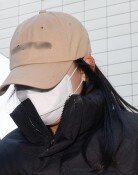[Editorial] Reinspection and New Start Need for Diplomacy
[Editorial] Reinspection and New Start Need for Diplomacy
Posted July. 30, 2008 03:15,
The foreign policy of the incumbent administration has been put into question. Critics say few of the countrys diplomatic problems, including the shooting death of a tourist at North Koreas Mount Geumgang and Japans latest claim to the Dokdo islets, have been properly dealt with. Opposition and now ruling party lawmakers are also urging reform and disciplinary action against the diplomatic and security corps. What is more important, however, is examining the root of the matter. Only then can proper measures be drawn up and impeccable strategies and visions be formulated. Replacing a few officials is not the solution.
Of course, certain people must take responsibility for their blunders and negligence. One serious gaffe was not catching wind of North Korea asking to include the 2007 inter-Korean summit declaration into the chairmans statement of the ASEAN Regional Forum. Though Pyongyangs action was predictable given recent circumstances, it was not scrutinized beforehand. Seoul was also unaware that the U.S. Board for Geographic Names classified Dokdo as undesignated sovereignty. There is no excuse for such carelessness, considering that the Foreign Ministry and the Korean Embassy in Washington exist to handle these matters.
How were these blunders made? It could well come down to the systems flaws or personnel problems. The Lee administration is virtually paralyzed because of its sloppy job shown in the last round of U.S. beef negotiations. But Seoul is facing a similar crisis again, and a look at more fundamental issues is important.
In the first days of his term, President Lee Myung-bak said, There is no such thing as pro-American or pro-Chinese policies. Korea can become an ally with either the United States or China as long as the national interests of both countries match. No countries forge an alliance when there are conflicting national interests. This is now doubt, however, that the government focused on reinforcing friendly ties with Japan and the United States. This sort of reaction is against the left-leaning ideological tilt of the previous Roh Moo-hyun government. Lees direction is the correct one.
The results, however, are unsatisfactory. It is hard to say Korea has reaped benefits. Bilateral relations with Washington and with Tokyo have made no significant improvement, either. Seoul promised to raise its status as Washingtons strategic partner but bilateral relations are now a little more awkward. Korea has pledged future-oriented relations with Japan, but has been stabbed in the back over Dokdo. China has even openly belittled the Korea-U.S. alliance. Russia is showing signs of disappointment with Korea.
Diplomacy is often called war without gunfire. Meticulous strategies and tactics should thus be developed as if waging war. President Lees also heavily advertised programmatic foreign policies, as if he showed all of his cards to other players. Pragmatism is a goal, not a means. It is too naïve to think that if you treat others with good intentions, they will also treat you the same.
President Lee should re-establish fundamental democratic principles. If necessary, he should introduce a new system or reassign personnel. Once again, he must not try to avoid crisis by firing a few senior officials. As some leftists say, the government should not embrace North Korea without principle or be at odds with the United States under the slogan of self-reliance. This bad move will break down the Korea-U.S. alliance and lose public support.
Koreas diplomacy is facing grave challenges and crises worse than leftist groups say. Based on the alliance with the United States, the president must overcome this crisis with consistent principles that can eventually help him overcome the deadlock. Nothing is free, even in the world of diplomacy.







